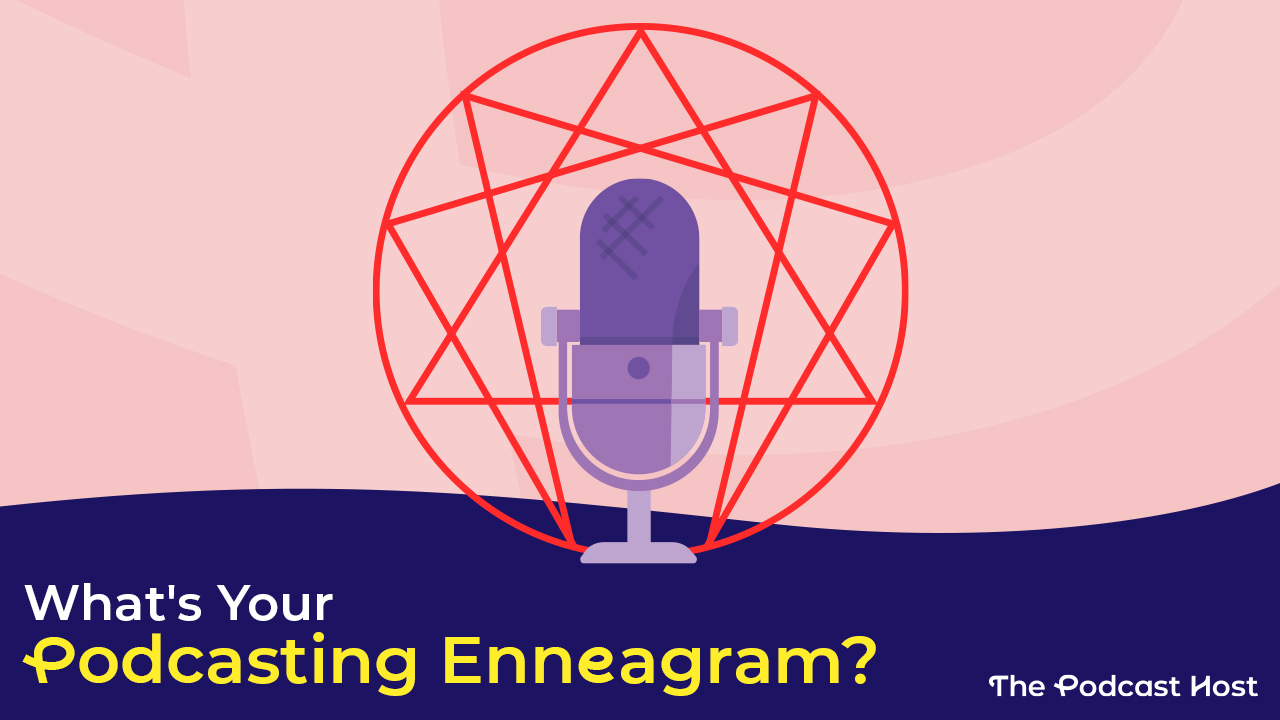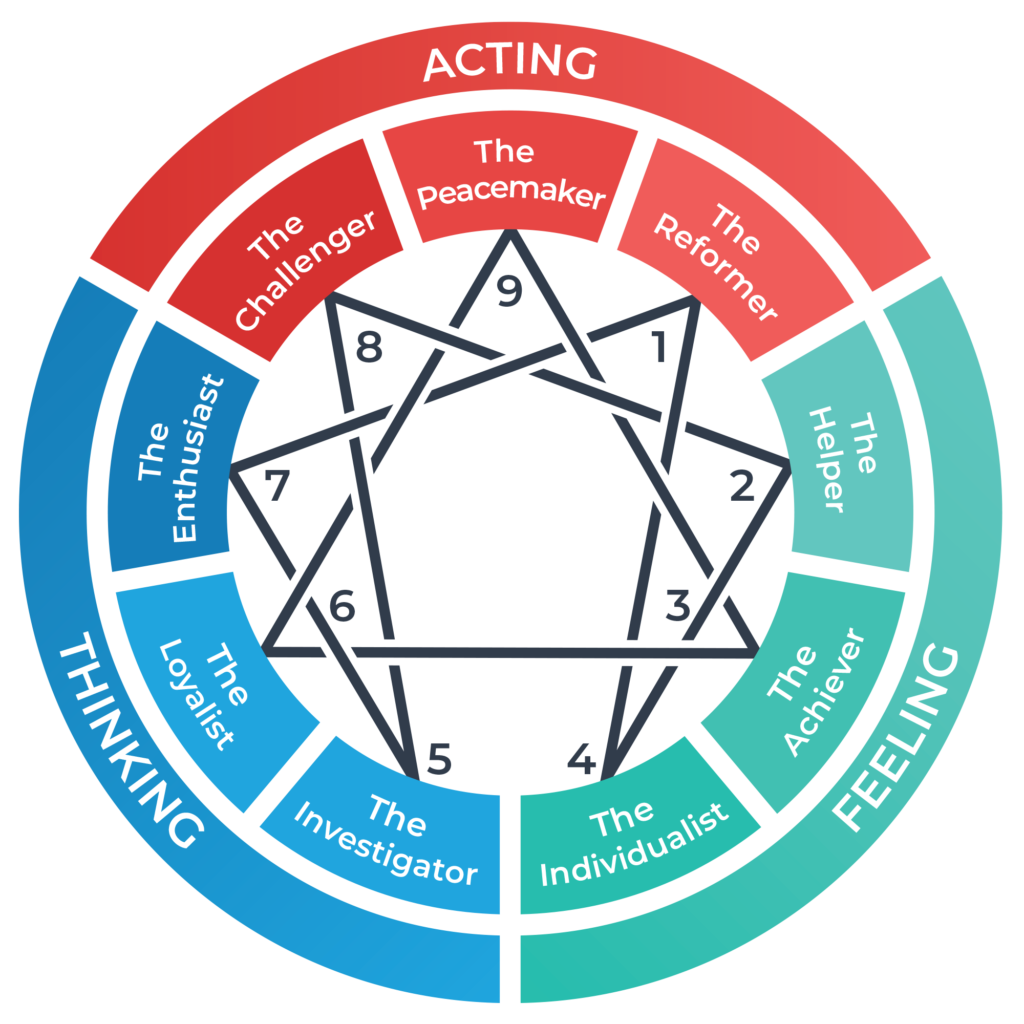How Enneagrams Can Improve Your Podcast

Your personality has a large impact on your podcast, so it makes sense that your personality strengths and weaknesses can impact your podcast, right? I’ve heard some podcasters talk about using a personality test called an enneagram to help them improve their podcasting workflow, creativity, and so on. In fact, learning their enneagram type helped them push through mental boundaries that were holding them and, ultimately, their podcast back. Like any self-assessment tool, it wasn’t easy but was very worth it.
What’s the Enneagram?
The enneagram is a complex, interconnected personality test that has ancient roots and a lot of modern-day interpretations. Consider this post enneagram lite because I’m only going to scratch the surface of this powerful tool. It’s also important to mention that I’m far from an expert on enneagrams. However, I’ve always been a firm believer that the self-awareness it provides can be used to help improve our podcasts. This has already been proved by the podcasters that I’ll share with you in a bit. But first, we need to touch on a few enneagram basics.

Enneagram Quick Facts:
- There are nine personality types (image above). We’ll be highlighting types 1 & 4.
- It has ancient roots and has had a resurgence in the past few years
- This is popular in both religious AND secular environments (we’re keeping it secular)
- There are three centres of intelligence (thinking, feeling, acting)
As I mentioned before, this tool is complex. There are triads, wings, and many more intricate ways to talk about the enneagram. If you’re curious for more, a quick Google search and/or search for podcasts in your favourite podcast app will provide you with plenty of information.
Here’s the free enneagram test that I took; there are many others, both free and more extensive paid versions.
Growth and Stress Paths to Improve Your Podcast
It’s easy enough to take the Enneagram personality test. There are many free versions available online. The challenging part is then using the knowledge from the test to move past mental blocks like possibly imposter syndrome. But, the beauty and sometimes the pain of the enneagram is the specific nature of our strengths and weaknesses that it points out. These are called growth and stress paths, and they are the cornerstones for improving our podcast. Paths because we can take the path to somewhere new OR we can refuse to face them. The choice is ours. Let’s find out how some podcasters used enneagrams to improve their podcast.
Type 1: Overcoming Perfectionism to Improve a Podcast
There are a few large hurdles in a podcaster’s creative life, in order:
- publishing the first episode
- getting the first listener feedback/engagement
- monetization
You Don’t Have to Do Everything Perfectly.
Podcast groups are filled with wanna-be podcasters asking so many questions that it almost seems like they’re opening up a production house. This tendency to overprepare and thus, unfortunately, delay publishing that first episode is very, very common. And it’s also something that Melissa Lent, Host of Tired In My Twenties, dealt with until very recently when she finally hit PUBLISH.
But when she was setting up her podcast, she thought:
“…I have to do this to make it successful, I have to do that to make it successful. I have to go above and beyond with every single thing that I’m doing to be successful. And I have to push myself to the limit of what I could do every single time to be successful.”
Give Your Podcast Room to Grow and Change
There were a few things that made her realize that the podcast could change and grow over time instead of needing to be perfect from the get-go. Facing her stress path of perfectionism for her enneagram type 1 was one of the factors that made her realize this. Type 1’s are so organized and idealistic that sometimes, their own rigid sense of right and wrong (or correct and incorrect) can stop anything from happening. We’ve all done this to some extent, but for type 1’s, the intensity of perfectionism and the frozen state can be overwhelming. And this was the case for Melissa during the 4-month podcast publication delay she experienced this year.
But hey, type 1’s, she pushed through it, and so can you! The key is to find out your Enneagram type, face your stress path and build ways to work around it. Just like she did!
Type 4: Keeping Emotions Balanced to Improve Your Podcast
You can tell by listening to Laura Joyce Davis’ voice on Shelter in Place that she speaks from the heart. The genuine emotional pauses, the heart high and low tones that her voice travels on, and more show this quality. Part of the time, you’re along for the story, but you’re also there for the voice, the personality telling the story: Laura. This delivery style, this way of moving vocally through the world, these are very type 4 traits! And although they can be powerful narrative storytelling tools, as Laura admits, they can be overwhelming also.
At the worse of times, type 4’s are so emotional that sometimes our feelings literally feel bigger than we are. They’re scary monsters that can consume us. Yes, I’m saying our and us because, like Laura, I’m a type 4. So I know firsthand how intense these emotions can be. They’re hard to get a handle on if we don’t learn how to deal with them. But Laura has learned how to do this, and enneagrams played a large role in this awareness.
“A key part of learning to appreciate my type has been reminding myself that not everyone feels things as intensely as I do. Just because my empathy radar is going off doesn’t mean mean it’s about me. If I can let those big feelings pass, or get a good night’s sleep, I can better discern whether or not I should reach out or just let it go.“
And so, by facing her growth path of intense emotions, she’s been able to make conscious choices on when they play a part in the podcast. When you listen to her episodes, you’ll hear this emotional sensitivity and the room she gave it to exist in a way that’s both beautiful and helpful.
An Enneagram Is a Self-Awareness Tool
Personally, I like to think of the enneagram much like podcast planning tools, plentiful and interchangeable. Just like Elsie Escobar replied in the below tweet, you don’t have to use just the enneagram alone.

The important thing is the act of thinking about your behaviours and facing the less pleasant ones. Working on these is sure to improve not only your life but your podcast as well.
